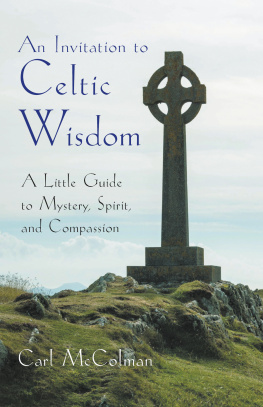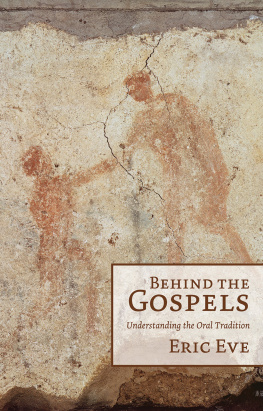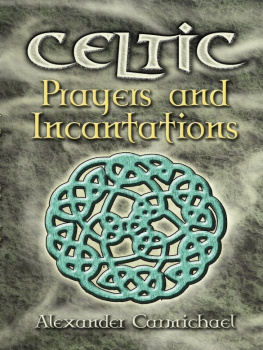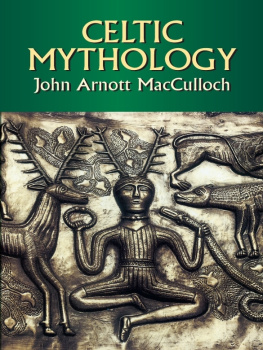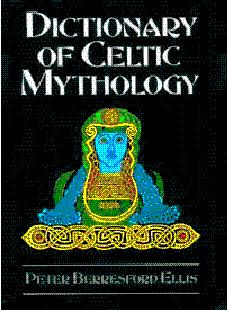The Folklore of Cornwall
By considering the folklore of Cornwall in a Northern European context, this book casts light on a treasury of often-ignored traditions. Folklore studies internationally have long considered Celtic material, but scholars have tended to overlook Cornwalls collections. The Folklore of Cornwall fills this gap, placing neglected stories on a par with those from other regions where Celtic languages have deep roots. The book shows how the Cornish droll tellers helped to build a unique pattern of legends and folktales, creating Cornwalls distinct body of oral tradition.
Two books in one: an erudite introduction to Cornish folklore, but the book also stands as an excellent introduction to modern folklore studies more generally.
Simon Young, University of Virginia (Siena, CET)
Ronald M. James is a historian and folklorist. In 2016 he was made a Bard of the Gorsedh Kernow, the Bardic Council of Cornwall, for services to Cornish heritage and culture, taking the name Carer HenhwedhlowLover of Legends .
Professor James is extraordinarily well-versed in European folklore, having a seemingly exhaustive array of legends to draw upon for his comparative analysis. His explication of folktale origins is convincing as well as interesting, and his explication of their meanings as a way of explaining pre-modern beliefs is especially intriguing.
Kevin J. Gardner, Professor and Chair, Department of English, Baylor University, USA
His detailed research in the United States, for example, reveals how emigrant Cornish men and women took their folklore to the mining frontier of the American West, adapting it to local conditions (as in the tommyknockers), yet further evidence of the traditions continuing vitality and relevance. Cornish folklore has been literally global in its impact and extent, and in this important book Ronald M. James encourages us to look at this fascinating subject in new and innovative ways. It is sure to be the standard volume for many years to come.
Philip Payton, Professor of History, Flinders University, Australia
Exploring a wealth of interesting and enjoyable tales, James sets the rich folklore of Cornwallfrom the indigenous piskie to the emigrant tommyknockerwithin a much wider historic and geographic context. This book is both highly informative and a real pleasure to read.
Ceri Houlbrook, Researcher in the History Group, University of Hertfordshire
Our first real book on Cornish folklore since 1890 and, my goodness, it has been worth the wait. You can count the great names in Cornish folklore studies on the fingers of one hand: Bottrell, Courtney, Hunt, Tregarthen and now, a century after Tregarthen put down her pen, Ron James. He has confirmed his membership of the club with this remarkable new work. The Folklore of Cornwall will prove an inspiration not only for Cornish scholars, but for folklorists more generally.
Simon Young, University of Virginia (Siena, CET)

First published in 2018 by
University of Exeter Press
Reed Hall, Streatham Drive
Exeter EX4 4QR
UK
www.exeterpress.co.uk
Ronald M. James 2018
The right of Ronald M. James to be identified as author of this work has been asserted by him in accordance with the Copyright, Designs and Patents Act 1988.
British Library Cataloguing in Publication Data
A catalogue record for this book is available from the British Library.
ISBN 978 0 85989 470 8 Hardback
ISBN 978 0 85989 499 9 epub
ISBN 978 0 85989 534 7 Pdf
Typeset in Perpetua 11 point on 14 point by BBR Design, Sheffield
F OR THE D ROLL T ELLERS
Contents
Cover The folklore of Cornwall is more than cute pixies and quaint legends: serious concerns about terrifying encounters with the supernatural fill the narratives. W.H.C. Groome (18541913), a noted illustrator, portrays piskies tormenting a horse. Night-riders, Night-riders, please stop! appeared in Enys Tregarthens North Cornwall Fairies and Legends , published in 1906. Tregarthens stories often strayed from oral tradition, but here she hits the mark: the Cornish believed piskies sometimes troubled horses during the hours of darkness.
Back cover The Zennor Poet, by Richard T. Pentreath, depicts Henry Quick (17921857), often called the last of the Cornish droll tellers. Quick, to the far left, is reading one of his compositions to a receptive audience. Pentreath (18061869) received the Bronze Medal for the painting at the Royal Cornwall Polytechnic Society in 1842. Lost for decades, The Zennor Poet was rediscovered by Viv Hendra at the Lander Gallery in 2015. Courtesy of the Zennor Parish Council with thanks to Penlee House Gallery and John Nicholsons Fine Art Auctioneers and Valuers.
Firstly, it is important to thank Philip Payton, the former director of the Institute for Cornish Studies, who published two of my articles about indigenous folklore in Cornish Studies . His input during the 2009 International Gatherings of Cornish Cousins in Grass Valley, California, helped inspire the completion of this book. In addition, special thanks to Professor Payton for writing a preface for this volume; it is an honour to have a contribution from such a distinguished authority on Cornwall.
Secondly, Garry Tregidga, the current director of the Institute for Cornish Studies, also encouraged the development of this book. He reviewed a preliminary chapter outline and offered general support. In addition, Dr Tregidga published one of my articles on folklore in Cornish Studies . Thanks as well to Simon Baker and Helen Gannon of the University of Exeter Press for their expert efforts in guiding this book into print. In this context, gratitude must be expressed to the anonymous reviewers who provided excellent suggestions for the process of revision. Appreciative recognition is also due to Tim Absalom, Geomapping Unit, University of Plymouth, for the drafting of the map used in this volume. In addition, my thanks to Melanie James for heroic assistance with the copy-editing and to Amanda Thompson of BBR Design for talent and perseverance during the typesetting process.
I have benefited from the opportunity to give presentations at International Gatherings of Cornish Cousins in North America. The chance to meet Cornish enthusiasts and scholars and to receive feedback on topics dealing with the folklore of Cornwall was invaluable. Along this line, thanks as well to the California Cornish Cousins and particularly to Gage McKinney for kind support for this project over the years.
I gratefully acknowledge the International Telephone and Telegraph Corporation and the Institute of International Education for funding my fellowship to Ireland, 19811982, during which I initiated research on this project at the Department of Irish Folklore (now the National Folklore Collection). This facility houses the enormous library of Carl Wilhelm von Sydow (18781952), which includes nineteenth-century books dealing with Cornish folklore, allowing for my first chance to read on this topic. In addition, attending an excellent presentation in 1982 at the Department of Irish Folklore by Ronach U gan and Anne OConnor was an inspiration. It began my considering how their Irish variants of The Spectre Bridegroom might compare with those of Cornwall. That line of thinking shaped how this volume would unfold.
Decades of discussions about folklore with my friend, William Kersten, deserve recognition and thanks for all he contributed to these pages. Simon Young of the University of Virginia Program (CET) Siena, read draft articles, which transformed into chapters, offering useful suggestions. More importantly, he shared drafts of his excellent work, affording me the opportunity to have access to his research often before publication. Philip Hayward of Kagoshima University, Research Center for the Pacific Islands, read a draft of my article on mermaids, the core of . He provided valuable comments. Similarly, Paul Manning of Trent University offered an ingenious way to consider Cornish mining spirits; the opportunity to have conversations with him in emails and in person was helpful and much appreciated. Thanks to the editors of Western Folklore for providing suggestions in the late 1980s that improved my work about the knockers and their American descendants, research that was initiated during my Irish sojourn.




